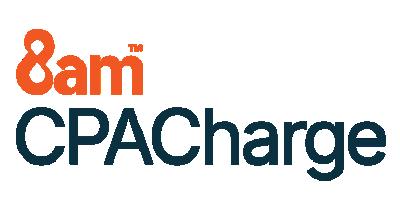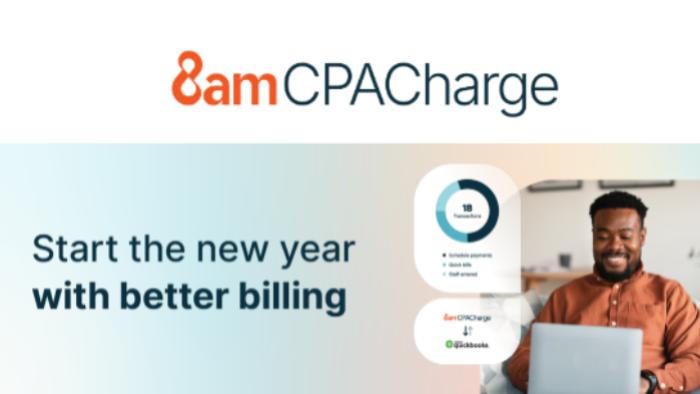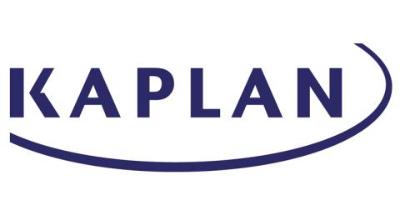Everything CPAs and Accountants Need to Know About Credit Card Surcharge Processing

Content originally appeared on the CPACharge blog.
CPAs and accountants are all too familiar with the fact that it costs money to move money within our financial systems. Credit cards are no exception to this rule—if you accept credit card payments from your clients, you’ll inevitably have to pay processing fees with each transaction. Of course, as a business owner, you’re also looking for ways to off-set your costs and operate more efficiently.
Many businesses that accept credit cards use surcharges to account for this, but you may be wondering how to effectively implement one into your billing, or if it's even legal for you to do so in your state.
Below, we’ll break down exactly what surcharging means, including its legal status in the U.S. and what you can do to implement them.
What is a surcharge?
In the context of credit cards, surcharging is defined as adding up to 4 percent on credit card transactions to recoup payment processing costs. The practice became permissible to merchants in 2013 in the wake of a class action lawsuit against Visa and MasterCard.
It’s important to note that a surcharge is distinct from a convenience fee, which is a relatively older but similar term in the credit card lexicon. A convenience fee is a flat rate that can be added to both debit and credit card transactions. It’s a cost passed to the customer to give them the option of paying in a way that’s convenient to them, hence the name.
The legal status of surcharging in the U.S. (by state)
Surcharging has been outlawed as an anti-consumer practice in certain states. However, these laws were challenged in such states as New York and California, and other states may follow suit as time goes on.
Below is a list of each state’s surcharging laws (last updated March 2021). If you have any questions about your state’s surcharging laws, please contact your state attorney general.
Alabama:
Surcharge Prohibited: No
Credit/Debit Usage Discounts: No
Resources: Alabama Attorney General
Alaska:
Surcharge Prohibited: No
Credit/Debit Usage Discounts: No
Resources: State of Alaska Department of Law
Arizona:
Surcharge Prohibited: No
Credit/Debit Usage Discounts: No
Resources: Arizona Attorney General
Arkansas:
Surcharge Prohibited: No
Credit/Debit Usage Discounts: No
Resources: Arkansas Attorney General
California:
Surcharge Prohibited: No
Credit/Debit Usage Discounts: Yes
Resources: California Attorney General
Colorado:
Surcharge Prohibited: Yes
Credit/Debit Usage Discounts: Yes
Resources: Colorado Attorney General
Connecticut:
Surcharge Prohibited: Yes
Credit/Debit Usage Discounts: Yes
Resources: Connecticut Attorney General
Delaware:
Surcharge Prohibited: No
Credit/Debit Usage Discounts: No
Resources: Delaware Attorney General
Florida:
Surcharge Prohibited: No
Credit/Debit Usage Discounts: No
Resources: Florida Attorney General
Georgia:
Surcharge Prohibited: No
Credit/Debit Usage Discounts: No
Resources: Georgia Attorney General
Hawaii:
Surcharge Prohibited: No
Credit/Debit Usage Discounts: No
Resources: Hawaii Attorney General
Idaho:
Surcharge Prohibited: No
Credit/Debit Usage Discounts: No
Resources: Idaho Attorney General
Illinois:
Surcharge Prohibited: No
Credit/Debit Usage Discounts: No
Resources: Illinois Attorney General
Indiana:
Surcharge Prohibited: No
Credit/Debit Usage Discounts: No
Resources: Indiana Attorney General
Iowa:
Surcharge Prohibited: No
Credit/Debit Usage Discounts: No
Resources: Iowa Attorney General
Kansas:
Surcharge Prohibited: No
Credit/Debit Usage Discounts: No
Resources: Kansas Attorney General
Kentucky:
Surcharge Prohibited: No
Credit/Debit Usage Discounts: No
Resources: Kentucky Attorney General
Louisiana:
Surcharge Prohibited: No
Credit/Debit Usage Discounts: No
Resources: Louisiana Attorney General
Maine:
Surcharge Prohibited: No
Credit/Debit Usage Discounts: No
Resources: Maine Attorney General
Maryland:
Surcharge Prohibited: No
Credit/Debit Usage Discounts: Yes
Resources: Maryland Attorney General
Massachusetts:
Surcharge Prohibited: Yes
Credit/Debit Usage Discounts: Yes
Resources: Massachusetts Attorney General
Michigan:
Surcharge Prohibited: No
Credit/Debit Usage Discounts: No
Resources: Michigan Attorney General
Minnesota:
Surcharge Prohibited: No
Credit/Debit Usage Discounts: No
Resources: Minnesota Attorney General
Mississippi:
Surcharge Prohibited: No
Credit/Debit Usage Discounts: No
Resources: Mississippi Attorney General
Missouri:
Surcharge Prohibited: No
Credit/Debit Usage Discounts: No
Resources: Missouri Attorney General
Montana:
Surcharge Prohibited: No
Credit/Debit Usage Discounts: No
Resources: Montana Attorney General
Nebraska:
Surcharge Prohibited: No
Credit/Debit Usage Discounts: No
Resources: Nebraska Attorney General
Nevada:
Surcharge Prohibited: No
Credit/Debit Usage Discounts: Yes
Resources: Nevada Attorney General
New Hampshire:
Surcharge Prohibited: No
Credit/Debit Usage Discounts: No
Resources: New Hampshire Attorney General
New Jersey:
Surcharge Prohibited: No
Credit/Debit Usage Discounts: No
Resources: New Jersey Attorney General
New Mexico:
Surcharge Prohibited: No
Credit/Debit Usage Discounts: No
Resources: New Mexico Attorney General
New York:
Surcharge Prohibited: No
Credit/Debit Usage Discounts: No
Resources: New York Attorney General
North Carolina:
Surcharge Prohibited: No
Credit/Debit Usage Discounts: No
Resources: North Carolina Attorney General
North Dakota:
Surcharge Prohibited: No
Credit/Debit Usage Discounts: No
Resources: North Dakota Attorney General
Ohio:
Surcharge Prohibited: No
Credit/Debit Usage Discounts: No
Resources: Ohio Attorney General
Oklahoma:
Surcharge Prohibited: No
Credit/Debit Usage Discounts: Yes
Resources: Oklahoma Attorney General
Oregon:
Surcharge Prohibited: No
Credit/Debit Usage Discounts: No
Resources: Oregon Attorney General
Pennsylvania:
Surcharge Prohibited: No
Credit/Debit Usage Discounts: No
Resources: Pennsylvania Attorney General
Rhode Island:
Surcharge Prohibited: No
Credit/Debit Usage Discounts: No
Resources: Rhode Island Attorney General
South Carolina:
Surcharge Prohibited: No
Credit/Debit Usage Discounts: No
Resources: South Carolina Attorney General
South Dakota:
Surcharge Prohibited: No
Credit/Debit Usage Discounts: No
Resources: South Dakota Attorney General
Tennessee:
Surcharge Prohibited: No
Credit/Debit Usage Discounts: No
Resources: Tennessee Attorney General
Texas:
Surcharge Prohibited: No
Credit/Debit Usage Discounts: No
Resources: Texas Attorney General
Utah:
Surcharge Prohibited: No
Credit/Debit Usage Discounts: No
Resources: Utah Attorney General
Vermont:
Surcharge Prohibited: No
Credit/Debit Usage Discounts: No
Resources: Vermont Attorney General
Virginia:
Surcharge Prohibited: No
Credit/Debit Usage Discounts: No
Resources: Virginia Attorney General
Washington:
Surcharge Prohibited: No
Credit/Debit Usage Discounts: Yes
Resources: Washington Attorney General
West Virginia:
Surcharge Prohibited: No
Credit/Debit Usage Discounts: No
Resources: West Virginia Attorney General
Wisconsin:
Surcharge Prohibited: No
Credit/Debit Usage Discounts: Yes
Resources: Wisconsin Attorney General
Wyoming:
Surcharge Prohibited: No
Credit/Debit Usage Discounts: Yes
Resources: Wyoming Attorney General
Credit card surcharging rules
If you choose to surcharge, you’re required to follow rules put in place by each credit card brand. We’ll discuss the most common rules below:
Notify the card brand of your intent to surcharge
Almost every major card brand requires you to notify them of your intention to surcharge. Most brands have a form you can fill out available on their website. Otherwise, you must provide a written letter to your account representative. Fortunately, if you’re using the right online payment solution, this step can be skipped altogether, as they will handle it on your behalf.
Notify your clients of your intention to surcharge
You are also required to notify your customers or clients of your intention to surcharge (as soon as you are eligible to do so). For example, if using an online payments solution, you would have to include language on your payment page that clearly states your intentions to do so.
Do not surcharge more than the cost of your processing fee
This rule essentially means that you can only surcharge to recoup the losses sustained from processing fees—you cannot use surcharging as a means to profit. If, for example, your all-in rate is only 3 percent, you cannot apply a 4 percent surcharge.
Surcharges must be listed as separate line items
You cannot simply loop your surcharges into each transaction. Whenever a surcharge occurs, it must be listed separately on each invoice.
Payment processing may be one of the costs of doing business in today’s economy. However, your clients will appreciate being able to pay with a more convenient payment option, which increases the speed and the frequency that you’ll get paid for your services. And with surcharging, you can benefit from the efficiency and popularity of online payment solutions while still offsetting the fees associated with credit cards.
Share This Article
What's Trending?
Trending topics & tools for the CPA community
How Firms are Rethinking Reasonable Comp (Quick Video)
It’s a short video and makes the value of repeatable, data-backed approach clear (especially compared to spreadsheets, gut checks and one-off calculations).
Learn how 8am CPACharge delivers clarity and confidence for accounting firms.
8am™ CPACharge brings invoices, payments, and reconciliation together in a solution designed to make your day easier from start to finish.
Seniors on Social Security Could Face $460 Monthly Cut to Benefits
Jim Komoroski, RSSA®, is quoted in Newsweek, offering expert insight into the projected monthly cuts to Social Security benefits should Congress fail to act.
Resources
Valuable information provided by our sponsors.
Specialize in Social Security
Looking to enhance your retirement planning expertise? Your solution: pursue the Registered Social Security Analyst®...
CPAdirectory members have access to discounted auto and home insurance
At CPAdirectory, we think it's a good thing to provide our members with access to...
Free CPE Course: ChatGPT for Tax Pros — Limited Offer
CPAdirectory and CCH CPELink are giving you free access to the on-demand course: ChatGPT for...
PE Deals In Accounting: Valuations, Structure, Tradeoffs
In this webinar, you’ll hear from firm leaders and industry experts who will share real-world...
Stand Out as a Trusted Social Security Expert with the RSSA® Designation
Designed for CPAs, the Registered Social Security Analyst® (RSSA®) designation provides advanced training to help...
How Firms are Rethinking Reasonable Comp (Quick Video)
It’s a short video and makes the value of repeatable, data-backed approach clear (especially compared...












